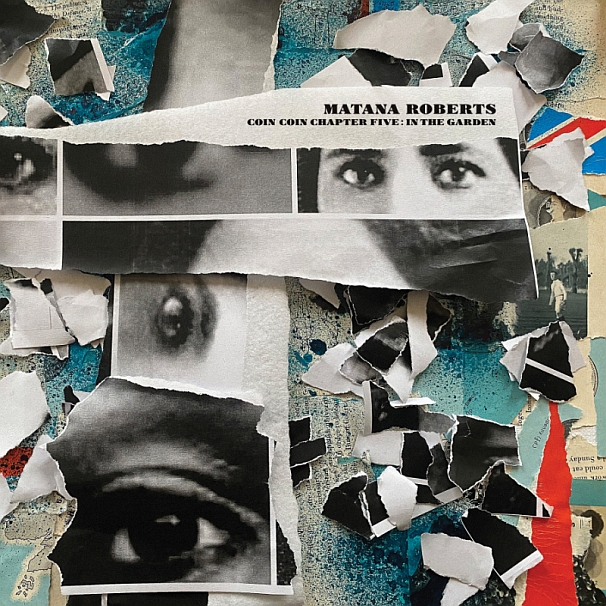CONSTELLATION RECORDS 29th September 2023
This is only the second one of the series I’ve heard but I see the pattern and it’s a good one. This set is gripping, fascinating and totally worth your time. Matana Roberts fuses story telling with avant-garde jazz music. Blowing and playing hard in intervals between spoken word and providing atmospheric illustration alongside narration.
Alternately playful, life-celebrating, angry and resigned, Roberts again explores the life of one of their family tree. One who ultimately lost her life thanks to a lack of control over her own reproduction. There’s more too it than that – there’s racism, there’s misogyny, there’s being emotionally tied to her progeny – and as the story unfolds, it deepens and I feel the dilemmas tugging inside. It’s a worthy addition to the projected twelve part series, I just hope we don’t have to wait another four years for the next instalment.
Playful in expression at times, near the beginning we hear a neologism; “Looking curious as a kitten rascal, he is,” and the repeated aphorism, “They didn’t know I was electric, alive, spirited, fire and free” repeats like a Kurt Vonnegut motif. The individual spirit hidden but proud in itself. And yet not so individual – “My name is your name,” Roberts says – their experience links to yours. Matana has set themself the task of exploring the experience of African-American women in their family tree. Given the history of the States, this inevitably brings up the personal challenges, battles, tragedy and small triumphs of individual women. As the tale winds on I am feeling for this put-upon yet resilient woman and the pain is real as she dies from an illegal abortion. Yet she’s not a victim, Roberts imagines a bold spirit for her that seeks the positive, that seeks a way for life to triumph, even if ultimately iniquitous inequality plays the trump.
The music is sometimes free-blowing, sometimes a dissonant tuning up, sometimes hinting at Albert Ayler in shape and direction, sometimes theatrical and illustrative. The sax is significant for it’s vocal expressiveness and Roberts says; “It’s not just the alto saxophone as an instrument placed in the jazz canon, it’s the alto saxophone as an instrument that can be utilised to affect the body.” There are passages that echo Tom Waits’ theatrical illustrations and ‘but I never heard a sound so long’ is a powerful choral lullaby. The band don’t just play instruments – they clap, they chant, they murmur; the whole is a cohesive patchwork.
The music and the words are of the same cloth, one is not the colour to the other. This would be a devastating piece in live performance and if you give yourself over to the recording (whatever it is, it definitely isn’t background), the emotions are visceral, drawn into being by the creative collage of melody, rhythm, patterns and meaning.
See our review of Chapter Four
Ross McGibbon
